Healthy Outlook: A Q&A with Whitman-Walker Health CEO Naseema Shafi
Shafi aims to promote diversity and social justice as part of the organization's greater mission

“There’s no way that you could work at Whitman-Walker and not become a better person,” says Naseema Shafi, the CEO of the federally-qualified community health center that specializes in HIV/AIDS and LGBTQ-affirming care. “You must open your mind, unlearn things, open your heart, treat other people with dignity, and embrace them. I don’t know any other way to be than authentic in my leadership style. And what you get back is this incredible amount of love.”
Shafi says she has become less binary in her thinking about gender, something that wouldn’t otherwise have happened if she weren’t exposed to the concept through her work at Whitman-Walker Health and her interactions with transgender and nonbinary co-workers. “It’s a fantastic shift in the way you think,” she says. “It’s way more than pronouns. I think for people who don’t exist in spaces where they’re thinking about it all the time, it is a complete paradigm shift, and it’s a really important one.”
The youngest of four children born to immigrant parents, Shafi grew up in a household that prized and celebrated diversity, and developed an appreciation for social justice — values that have shaped her work at the venerated organization.
“I have been conscious for my entire life that I would not have what I have without other people suffering and making big sacrifices,” she says. “I have been very conscious of how much privilege and power I have, and that I have a responsibility to do more for people.”
As a Muslim-American, Shafi has also experienced her share of prejudice, particularly in the years immediately following 9/11, when she felt the level of Islamophobia in the United States ramp up. Her experiences also made her more empathetic to those who experience mistreatment because of their identities.
In 2007, Shafi applied for a position with Whitman-Walker Health, and was hired as a compliance analyst, later becoming the director of compliance before being promoted to chief operating officer. Following Whitman-Walker’s reorganization in January of 2019, she became the CEO of Whitman-Walker Health, the entity that deals with health care delivery and patient outreach.
Shafi experienced culture shock during her first few months on the job in 2007. She had joined the organization during a turbulent time when it was experiencing financial instability. Don Blanchon, in only his second year as CEO, was attempting to right the ship.
“I was coming from a corporate law firm world to a nonprofit,” she says. “Don had been here for a year and we were really in the middle of trying to unearth ourselves from that place we had been in. And my first major responsibility was to look at our 2005 audit, which was a year late being produced…and was told that I needed to help us get to a clean audit. So I was trying to understand what our grant requirements were, what we weren’t doing that we needed to be doing, and meeting with program staff on it. It was just so chaotic.”
Reflecting on Whitman-Walker’s legacy as it begins its fifth decade of service to D.C.’s LGBTQ community and other under-served populations, Shafi says resiliency and innovation have been, and will most likely be in the future, crucial to the health center’s survival. She emphasizes the importance of engaging and seeking feedback from the patients and communities that Whitman-Walker serves, and crafting the organization’s mission going forward.
Shafi says the most frustrating part of her job is the highly technical, heavily regimented way in which health care is delivered, as well as barriers, like the quality or availability of insurance coverage or the lack of a support system or patient advocates, that impede those seeking treatment. To Shafi, such issues are personal.
“My husband Sean died from brain cancer in June of 2012,” she says. “He was diagnosed in 2009, and I learned through that experience how important it is to have a health care advocate, and how in some health care settings, when it’s complex, you do need another person in the room to understand what’s happening. Our system isn’t set up for that either, because someone then has to take off from work, which is a loss of income sometimes. But it’s a really important lesson and it informs the way I think about this place.”
Shafi takes satisfaction in helping those who can seek out Whitman-Walker’s services and is immensely proud of the high-quality care the health center provides.
“I still feel the most satisfied or the most pride either in our elevators or in our waiting areas,” she says. “Those are the places where people who are so different from one another would never ever be together but for our sites. The team who works here really strives to provide an environment where everybody feels welcome and that we live out our ‘We See You’ message that we try to communicate through our work.
“Yesterday, I was leaving and someone was coming in, and I got to say, ‘What are you here for?’ and help them get where they’re going. It’s hard out there, but in here, it shouldn’t be.”

METRO WEEKLY: What was your childhood like?
NASEEMA SHAFI: I was born in Albuquerque, New Mexico. I’m the youngest of four and we were all born there. My family, the second time they immigrated to the U.S., we landed in, of all places, New Mexico. When I was 10, we relocated to Sharon, Massachusetts, a suburb of Boston.
I think what was so special about my parents’ experience, because they come from two different places — one’s from Trinidad, one’s from Pakistan — that when they got to New Mexico, the Muslim community was brand new and all immigrant-based and largely made up of students. And they started to create this environment where it was okay for everybody to be together. All the students would get together, and my mom and dad would host dinner parties at their house and they’d host prayers at their house.
And so, from a really young age, I got to see different kinds of people together. I got to see different kinds of people together, celebrated and safe and happy and content, and it’s fantastic.
MW: Did that set the tone for the rest of your life, in terms of how you value diversity and inclusion?
SHAFI: Yes, absolutely. I’ve been reflecting a lot on that as I enter this phase in my career here at Whitman-Walker that what motivates me to improve what we do here and how we reach out to the communities that we serve is that thing that my parents did, which was really cultivate a space where people could be together. I think that ability to be different together was informative for me. I think I still move through the world longing for a sense of place and a sense of belonging. It’s one of those things where you know it when you’re in it, and that to me is community.
MW: What was it like growing up as a Muslim in the United States?
SHAFI: I don’t think that I experienced outright discrimination, but there were definitely things said that were problematic. When I lived in Massachusetts, for example, there was a year in middle school when swastikas had been written on a bathroom stall, and one of my classmates said that I must have done it. I was 11. And then when the Iraq-Kuwait war happened, one of my classmates asked if it was okay that she was mad at me.
So from a really young age, I had this feeling of, “Why am I having to be in this crazy big identity pool and defend my faith and defend my identity?” And that never went away. I think the level of Islamophobia in the country kind of dipped for a little while, and then ratcheted back up after 9/11, and then dipped again, and it was really bad with this last presidential election. My father is a very active leader in the community, and certainly was when we were younger, so I think I was also really conscious of how he was treated differently, including having federal authorities question him at different times in our lives.
MW: Was that scary?
SHAFI: It wasn’t scary, but it was so clearly wrong, and so clearly being caught up in this big net. So I think it committed me to making sure that people knew me. Because if I was going to be the only Muslim you knew, you would know someone who you liked. And from an early age, I just felt like, “I have this really unique opportunity to make sure that people have to challenge their stereotypes because they know me.”
MW: What were your teenage and college years like?
SHAFI: During my teenage years, I was vice president of my class. I was voted “Most Spirited” and went to every athletic event, and I was in theater and it was fun. I went to the University of Maryland in College Park and was really active in student government. My favorite times were at the student union, where they had a suite where all the identity-based student groups were on the perimeter, and we would all get together and have these conversations about our identities on these dirty old couches. It was so fantastic, and such a great learning opportunity, and fostered this sense of community.
It was in college when two things happened that really relate to my experience and my commitment to Whitman-Walker. The first was that The Diamondback, which is the publication that the undergraduates put together at Maryland, would do an insert as part of Coming Out Day, where you could put your name in, and you could either come out or you could be an ally. And I was like, “Oh, I’m totally going to put my name in as an ally.” And there were parts of the Muslim community on campus that felt a certain way about that. So I was challenging these deep things that I love about myself. I love my Muslim identity, and it is not friendly to members of community that I love. And so I had to think of “How do I rectify that in my head?”
The second thing was Matthew Shepard was killed when I was in college and I just thought, “That could be me.” People hurt people out of hatred, and that’s horrible, and I will never not stand up in the face of that and protect people.

MW: Who was the first person that came out to you as LGBTQ?
SHAFI: My best friend in Massachusetts came out to me when we were in high school, and then one of my dearest friends in college came out to me when we were in college. And then I knew another who came out early in college, so the queer community around me grew quite a lot there.
I think I always had an awareness that people around me were part of the LGBTQ community. I had two educators when I was in middle school who were women that lived together and we knew that they were lesbian. I was also in this play when I was 11 years old that my teacher wrote called Baby X. The premise of the story was that there was a child named Chris that was raised with dolls and trucks and their gender identity and pronouns were never revealed throughout the play.
In college, I remember my very dear friend was starting to go to national meetings to talk about what came after domestic partnership, and whether marriage equality was the path that the LGBTQ community should pursue. And we would have these great conversations about whether that was going to happen or not.
MW: Let’s talk about how your career path changed and how you ended up working for Whitman-Walker.
SHAFI: I’m an attorney by trade. I wanted to be an educator when I was younger, and then I wanted to work in college student personnel and be an advisor for student groups. And then 9/11 happened, and I thought, “I want to serve my community, and I want to serve my country in a way that makes us better somehow.” So I went to law school, and when I was done, it was at a time when the Bush administration wasn’t hiring anybody that looked like me, and I just really wanted to serve the community. I got an opportunity to interview here in a compliance function, and it was a brand new role that was created to work under general counsel. And I thought, “I have to apply for that job.”
And when I was interviewed, the general counsel at the time said, “You’ve never worked in a healthcare setting, you don’t know anything about compliance.” I said, “I’m going to read everything you tell me to read, I’m going to learn everything that I can. I’m going to do a great job.” And I just convinced her that I would, and thankfully, she hired me. So I didn’t mean to land in health care, I meant to land in some institution that mattered to the community, and I got to do that.
MW: How is Whitman-Walker’s reorganization going, and where do you stand on the major initiatives you prioritized?
SHAFI: It’s been like a regulatory nightmare, on one hand. I’m constantly pulling all the documents to make sure. Because every new thing is brand new in so many ways, so I’m checking back all the time. But it’s also been exciting to kind of engage people with us newly and differently — on Don’s side, with the foundation, the institute, thinking about our new fundraising partners, and what else we can be doing on research. And then on the health center side, thinking a lot more about which parts of the community we need to expand services for, and how we’re going to expand in Wards 7 and 8. And, of course, I still get to be really involved in Liz [the Elizabeth Taylor Medical Center building] and its redevelopment, and that’s been fantastic.
MW: How is the redevelopment of Elizabeth Taylor going, and what are you thinking in terms of timeline for when it will open?
SHAFI: It’s going very well. We will occupy the entire second floor of that building, which when we were in it it was about 35,000 square feet in total. Now, that one floor is 35,000 square feet. So we’ll have public benefits and legal services and research there. We move in next week. So it’s going to be busy and bustling with us again.
And then we’ll rededicate the space and have kind of a public ceremony the first week in November and the cultural center, which is where the foundation will open, will probably open with real activity in the first quarter of next year, but you’ll start to see it buzzing around. And then the rest — the third floor tenant — moves in in November as well, so it’ll be busy.
MW: Who is that third floor tenant?
SHAFI: It’s the Goethe-Institut, a cultural organization. And then our real estate partners, Fivesquares Development, will also be on that floor.
MW: What’s happening in terms of the Max Robinson Center?
SHAFI: Yeah, so super beautiful painted gorgeous Max Robinson Center. Our pharmacy there is very busy. We opened it last year and all the services that are there are going well. That space is small, it doesn’t offer the kind of opportunity for service that we want, and what I say to people is it’s this great beautiful space you walk in, you feel warmth and embracement.
It’s extremely high quality care, but we just can’t grow there, and if you’re in a wheelchair, it’s not a good experience for you the way you access the building. So we continue to look for space in Wards 7 or 8, and we hope to be close to being able to make a public announcement in the coming months on what that space would be, but we plan to have a similar footprint as we have in Northwest.
MW: If there were to be a place that were to open, would it just be that Max Robinson moves altogether, or would you keep the current building open?
SHAFI: We would move all the services that are at Max and then the services that we have on Capitol Hill at the youth site, and then I think the board would look at the Max Robinson Center to think about what to do with that space. We have a lot of experience thinking about what to do with the Elizabeth Taylor space, but I’m not sure what they would decide on.
MW: On the medical side, what’s the status of your outreach efforts to different communities?
SHAFI: One of our first major priority areas is to expand who understands PrEP [pre-exposure prophylaxis] and who is engaged on PrEP. And the most recent epidata numbers from the city for HIV show us that we’ve sort of plateaued in the new infections and there are big parts of the community who really understand and big parts who don’t. And so we were able to secure funding to use our social networks to try to reach out to people, and I think that’s going to be really important for us. So we’ll be focusing those efforts on reaching people of color, cis women, all trans folks, and men who have sex with men.
We are particularly interested in how we get more queer women engaged in the life of the health center and engaged in healthcare. For a long time, especially because we had so much specific HIV funding, didn’t have a lot of HIV-negative queer women engaged with us, and we’d like to increase that number. We continue to do a lot for youth. What we’re trying to do is build the right staffing model in place to make sure we’ve got the right kinds of clinicians to take care of folks under eighteen.
MW: You’ve had several research trials at Whitman-Walker and now you’re launching this HIV vaccine trial. What does that entail?
SHAFI: I think it’s a long acting PrEP. It’s a long acting HIV prevention tool. So there was a lot of movement to get PrEP out of the pill form and get it into an injectable and it’s definitely what’s coming down the pike. So something that you would only have to take three or four times a year, an injectable form, which would be fantastic, we could go out in the field and do it that way.
We start enrolling patients in November at our 1525 building at 1525 14th St. NW. We’re the only D.C.-based site. Most study sites are at academic institutions, and participants will receive a stipend to cover transportation costs. I know patients have to be treatment naive, which means they can’t already by on PrEP. There’s more to it, but I think the vaccine trial continues to tell the story about the innovative research that we’ve been a part of and are going to continue to be a part of.

MW: We’re seeing more billboards, bus stop ads, and even TV commercials with the “I’m on the pill” tagline promoting PrEP. Have those ads helped increase widespread awareness of PrEP, or are they only reaching certain populations?
SHAFI: I think it’s still mostly reaching the same populations. Our PrEP numbers are going up, so we provide care to a large number of folks in the city who are on PrEP. We are looking more and targeting other folks that we might reach. So, for example, we’re really focused on getting women and trans folks thinking about PrEP and whether it’s the right thing for them. So I’m not sure that that ad campaign has had a specific impact.
MW: At a time when grant money and government funding are being reduced, how are you coping to ensure you can fund your initiatives? Is there a need for more community engagement in the fundraising sphere?
SHAFI: There is absolutely a need. It’s really important that people know that we lose money on every single face-to-face patient visit, and we lose money on most of our grants. We need the support of the community, in terms of how they donate to the foundation, to help us close gaps all over the place. And then we have some services, like legal services, some of our youth-focused work, some of our prevention work in the community, and trans care navigation that, without the donor community, we wouldn’t be able to offer as robustly as we are. And of course the need is just great.
MW: The 33rd Walk to End HIV is coming up later this month. Beyond the addition of the Brunch to End HIV, how has the walk changed in the years since you joined Whitman-Walker?
SHAFI: One thing is there are a lot of walks and I think there is a lot of competition in the walk space, nationally. So for us, the question has been, “How do we remain compelling and get people out and have them be with us and fundraise for us that day?” So that’s been interesting, and, of course, we went from calling it “AIDS Walk” to the “Walk to End HIV,” and I think that was a really important change. Not without its own controversy, but an important change to really put our flag in the ground and say that we have all the tools we need to end the epidemic, and now we can focus on just taking great care of people.
I think the political climate, interestingly, has made it feel somehow more important to stand so near the White House on Freedom Plaza that day. Like it’s part of a very important thread that this is a resilient community that is not going anywhere and will continue to demand its rights, and health care is just one of those.
MW: Whitman-Walker has been more outspoken, particularly against the health care exemptions proposed by the Trump administration. Why was it important to speak out against, for example, the denial of care rule?
SHAFI: It was a very deliberate decision, and it was a long decision. We knew that it was coming and we knew speaking out was the only choice we had. We have a really unique opportunity because we deliver the care, and we know exactly what the impact will be, and we have an incredibly talented policy shop, that from a legal perspective understood and could be engaged with us to help us get through it.
Just as when section 1557 of the Affordable Care Act, which is the nondiscrimination portion, was being put together, we understood we were advocating for it to be very broadly interpreted and make sure that it protected everyone. We will be as protective in maintaining that level of protection. People will be harmed [by the Trump administration’s actions] and now is not the time for Whitman-Walker to be shy about that.
MW: Regarding Section 1557, if we see insurance starting to deny people for care, is that going to exacerbate the problems on the health provider side?
SHAFI: It’s going to do a bunch of things. It’s definitely going to overload the community providers, especially a place like us that’s culturally competent. But we don’t do surgeries, so we can’t do a gender-affirming surgery and help someone achieve the wholeness that they deserve. So what it will do, which is worse in some ways, is it will spiral the level of chaos and anxiety and pain in the community. Without any of these laws being actually passed, without any actual legislative change, just the talk of it has made people so much more concerned. Our immigrant patients are more concerned, the trans folks are more concerned. I was recently with an HIV-positive long-term survivor who was hoarding meds because they were worried about whether the administration is going to take their drugs away.
MW: On the most recent HAHSTA report for D.C. in terms of HIV, hepatitis, STDs, and tuberculosis, what did you see in the report that was cause for concern and what was a positive development?
SHAFI: The good thing is we take care of thirty percent of the people living with HIV who are D.C. residents. Whitman-Walker is really proud of that. I think we diagnosed a third of the primary and secondary syphilis cases, and we do a lot of that through the evening STI clinic. But we have about the same or more new HIV infections as last year. And I don’t feel good about that.
We’ve probably gotten to all the easy stuff, and the hard stuff is complicated by social determinants of health, transportation, access, income, housing. And we can’t solve all of those problems, but I think we can do better getting out into the community in the places where people are and in the social networks where communities are together, and helping people understand their prevention options.
MW: I know the HAHSTA report actually breaks down by precinct-level data. When you’re trying to use your mobile testing units for outreach, are you looking at that data and saying, “Oh, we need to send somebody to this area”?
SHAFI: Yes, we’re looking at that data really closely. We also have our own data showing a map with density. So we can look at, for example, our own patients whose viral load we don’t have data on in the past year, and we know that those folks have fallen out of care and we can go to them. But on the testing van we are going to start bringing clinicians out with us and so we’ll really be able to get out to the communities more and in a targeted way. It’s really important that we be targeted.
MW: How would you gauge the general level of support that Whitman-Walker enjoys within the larger community?
SHAFI: We’re community-owned and I think people are proud that Whitman-Walker has been able to maintain its position in the community, has been able to grow. I think we made mistakes in the past, but we’ve tried really hard to repair relationships along the way and make sure people know that we’re still here for them. And I think our evidence of that is that our patient population has grown. We’ve seen about a 800 to 900 patient growth every year since we opened the 1525 health center site. It’s a lot of growth.
MW: What else do we need to do to fulfill Whitman-Walker’s mission?
SHAFI: We need to do a lot more, but I don’t know what exactly. The communities we serve will tell us and it will always change. I think what we need to do is be flexible and be open and be available. I was saying the other day that I think we’re at a place beyond believing that the sky is the limit. This is an incredibly capable group of people working towards really important values with the right communities. So we can really do anything we want. But I don’t think we know what it is yet.
Whitman-Walker’s Walk and 5K to End HIV is on Saturday, Oct. 26, at Freedom Plaza, near 14th Street and Pennsylvania Avenue NW. Check-in starts at 7:30 p.m., with the 5-kilometer race kicking off at 9:15 a.m., and the walk starting at 9:20 a.m. For more information, visit www.walktoendhiv.org.
Whitman-Walker will be enrolling 40 to 60 patients as part of its HIV Vaccine Trial starting in November of 2019. Enrollment is limited to HIV-negative cisgender men, transgender men and women, and gender-nonconforming individuals aged 18 to 60. For more information, visit the HIV Vaccine Trials Network at www.hvtn.org.
For more information on Whitman-Walker Health, visit www.whitman-walker.org.
Support Metro Weekly’s Journalism
These are challenging times for news organizations. And yet it’s crucial we stay active and provide vital resources and information to both our local readers and the world. So won’t you please take a moment and consider supporting Metro Weekly with a membership? For as little as $5 a month, you can help ensure Metro Weekly magazine and MetroWeekly.com remain free, viable resources as we provide the best, most diverse, culturally-resonant LGBTQ coverage in both the D.C. region and around the world. Memberships come with exclusive perks and discounts, your own personal digital delivery of each week’s magazine (and an archive), access to our Member's Lounge when it launches this fall, and exclusive members-only items like Metro Weekly Membership Mugs and Tote Bags! Check out all our membership levels here and please join us today!








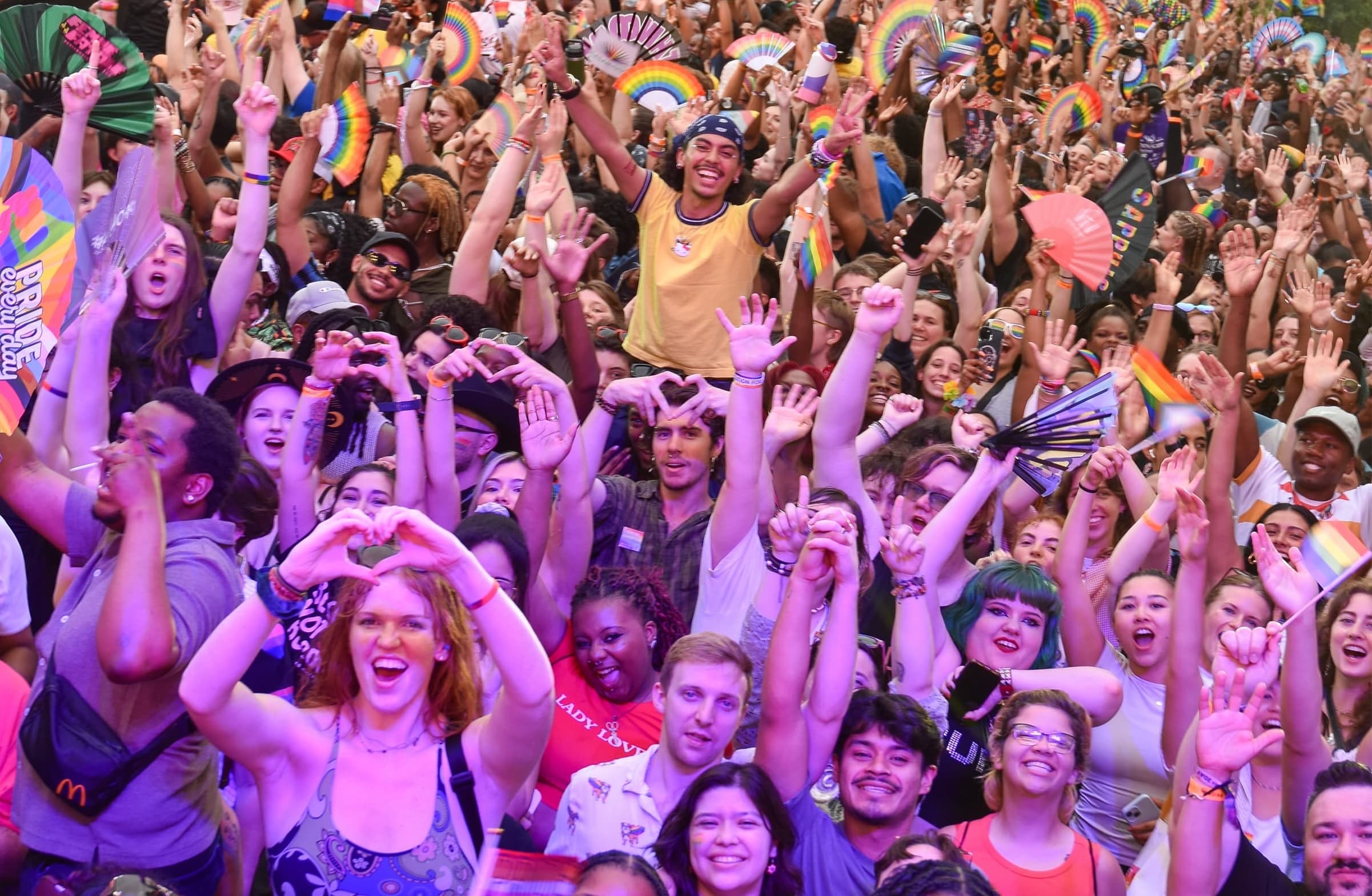
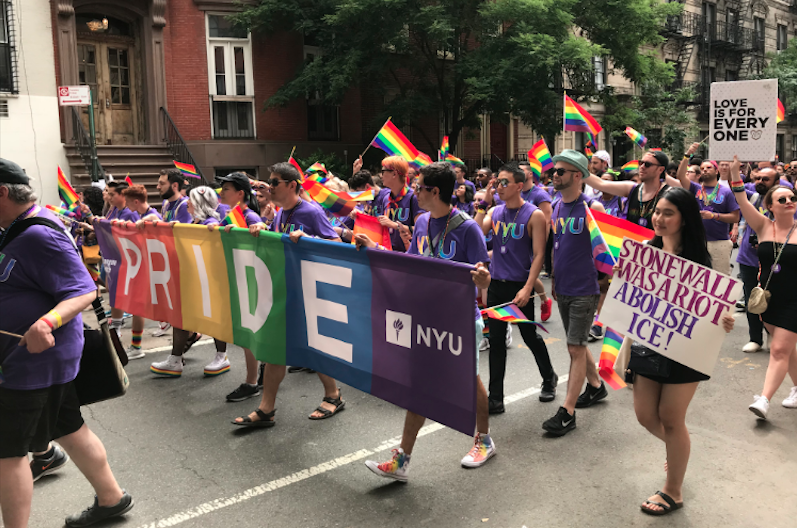
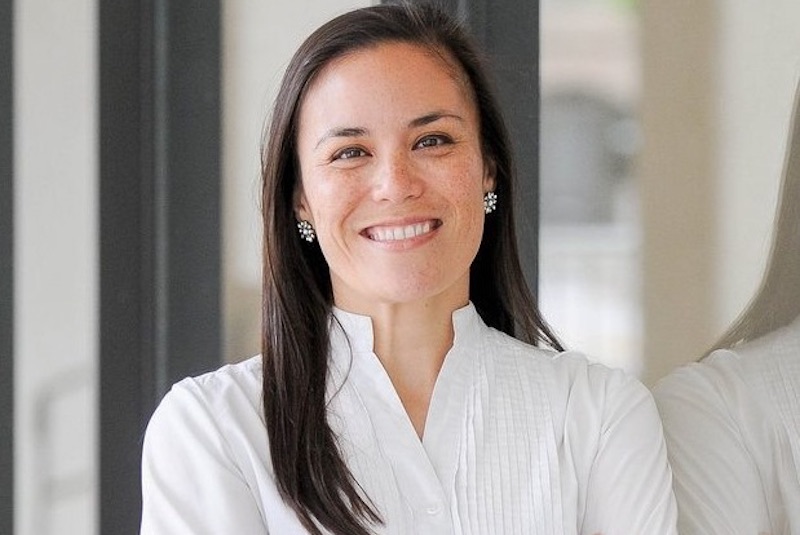















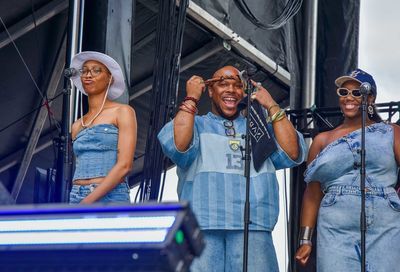

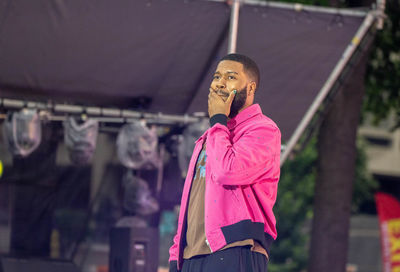

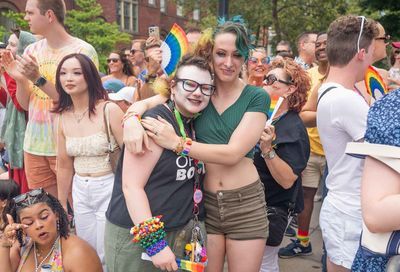
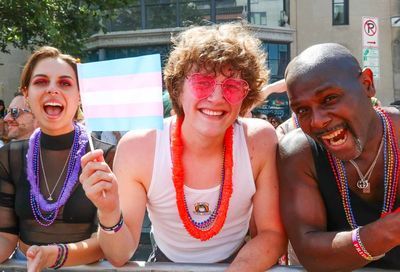
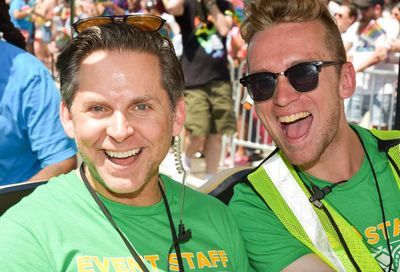
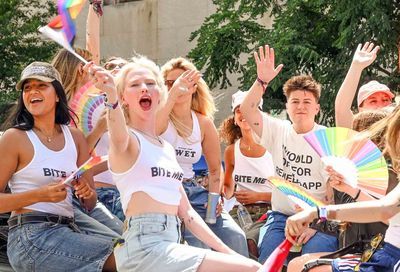
You must be logged in to post a comment.